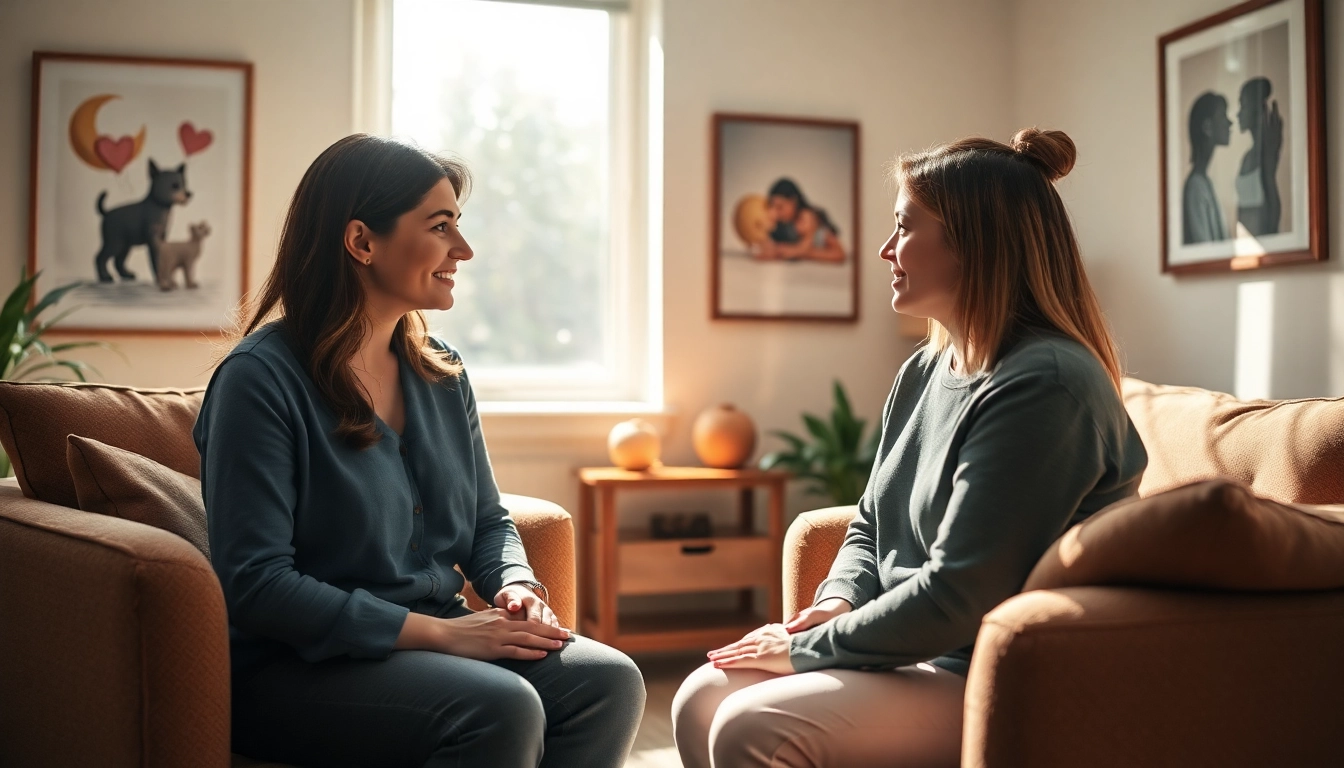What is Attachment Theory?
Definition and Origins of Attachment Theory
Attachment theory, initially developed by British psychologist John Bowlby in the mid-20th century, focuses on the emotional bonds formed between individuals, particularly between a child and their primary caregiver. Bowlby posited that these bonds are critical in the individual’s development and have lasting effects on psychological health and relationships across their lifespan. The practical applications of attachment theory have profoundly influenced psychology, particularly in understanding and treating various emotional and behavioral disorders.
From Bowlby’s foundational work, Mary Ainsworth further expanded the theory through her “Strange Situation” study in the 1970s, which identified three primary attachment styles in children: secure, anxious, and avoidant. This framework has since evolved into a more nuanced understanding of attachment that includes the implications for adult relationships, affecting how individuals connect with partners, friends, and children.
The Four Attachment Styles
Attachment theory identifies four main styles that arise from the caregiver-child relationship:
- Secure Attachment: Individuals with a secure attachment style generally feel comfortable with intimacy and autonomy in relationships. They tend to have a positive self-image and view others positively, actively seeking emotional support and being responsive to the needs of others.
- Anxious Attachment: Clients with anxious attachment often experience clinginess and fear of abandonment, stemming from the inconsistency of caregiving in childhood. They may struggle with self-worth and frequently seek reassurance from partners.
- Avoidant Attachment: Those with an avoidant attachment style may distance themselves emotionally and struggle to connect deeply with others. This stems from an early environment that emphasized self-sufficiency, leading to difficulty in trusting others.
- Disorganized Attachment: Emerging later from studies, this style combines elements of both anxious and avoidant attachment. It is often seen in individuals who experienced trauma or a chaotic upbringing, leading to confusion in relationships and emotional regulation.
Importance of Attachment in Relationships
Understanding attachment styles is vital for fostering healthy relationships. Individuals often unconsciously replicate their attachment behaviors in adult interactions. Each style influences relationship dynamics, from communication to problem-solving, often dictating patterns of conflict and intimacy. For example, someone with an anxious attachment style may find themselves in a repetitive cycle of seeking reassurance from a partner who is avoidant, leading to frustration and dissatisfaction for both parties.
The positive impact of secure attachment on relationships cannot be overstated; partners feel valued, understood, and supported. Consequently, recognizing and understanding these dynamics can encourage personal growth, improve emotional intelligence, and enhance relationship satisfaction.
Role of an Attachment Theory Specialist
Training and Qualifications
An attachment theory specialist typically holds an advanced degree in psychology, social work, or counseling, with additional training in attachment theory and its therapeutic applications. They undergo specialized education to understand how attachment influences behavior, emotional regulation, and interpersonal relationships. Many specialists are also trained in various therapy modalities such as Emotionally Focused Therapy (EFT), Cognitive Behavioral Therapy (CBT), and Dialectical Behavior Therapy (DBT), among others.
Methods Used by Attachment Theory Specialists
Attachment theory specialists employ several evidence-based techniques in therapy:
- Emotionally Focused Therapy (EFT): This approach helps partners understand their emotional responses and fosters a secure attachment within relationships through communication and empathy.
- Cognitive Behavioral Therapy (CBT): CBT can address dysfunctional thoughts stemming from insecure attachment styles, guiding clients to challenge and replace negative thought patterns.
- Experiential Therapeutic Models: These models focus on deepening emotional connections and enhancing therapeutic rapport, often exploring past experiences to understand present behaviors.
Benefits of Seeking an Attachment Theory Specialist
Engaging with an attachment theory specialist can unlock numerous benefits:
- Increased Self-awareness: Clients gain insights into how their past experiences affect their current relationships.
- Improved Relationships: By understanding attachment styles, clients can learn healthier interpersonal skills and develop secure attachments.
- Effective Conflict Resolution: Couples learn to navigate disagreements without resorting to destructive patterns, fostering better communication overall.
- Personal Growth: Clients typically experience increased emotional regulation and enhanced resilience, feeling more secure in themselves and their relationships.
Common Challenges in Attachment Styles
Identifying Your Attachment Style
A significant challenge individuals face is recognizing their own attachment style. Reflecting on personal relationships, especially early formative experiences, can provide clues. Questions to consider include:
- How do I typically respond to conflicts in relationships?
- Do I often seek reassurance from others?
- Am I comfortable being vulnerable with close friends or partners?
Professional assessments and questionnaires can aid in identifying attachment styles accurately, offering clarity on personal relational patterns.
Effects of Insecure Attachment on Relationships
Insecure attachment styles can lead to various relational challenges, including:
- Chronic relationship conflict due to miscommunication and differing needs.
- Difficulty trusting partners, often leading to jealousy and paranoia.
- Low self-esteem and feelings of unworthiness impacting relationship satisfaction.
- Patterns of emotional unavailability that inhibit intimacy.
Strategies for Overcoming Attachment Issues
Overcoming attachment challenges involves a combination of self-awareness, therapeutic support, and practice:
- Engagement in Individual Therapy: Working with a specialist can help untangle complex relational dynamics and develop healthier patterns.
- Open Communicative Practices: Expressing feelings and needs candidly can alleviate misunderstandings and foster intimacy.
- Mindfulness and Self-compassion: Incorporating mindfulness techniques into daily life cultivates self-awareness, reducing reactivity to perceived threats in relationships.
How to Choose the Right Specialist
What to Look for in an Attachment Theory Specialist
When seeking an attachment theory specialist, consider the following:
- Their educational background and training in attachment theory.
- Experience with specific attachment-related issues or populations.
- Approach to therapy and whether it resonates with your preferences.
- Client testimonials or reviews to gauge effectiveness and compatibility.
Questions to Ask Before Starting Therapy
It can be beneficial to prepare questions for a potential therapist, such as:
- What is your experience with attachment-based therapy?
- How do you incorporate attachment theory into your therapeutic practice?
- What is your approach if I have experienced trauma related to attachment?
How to Evaluate Progress
Evaluating progress in therapy should involve regular reflection on personal growth and relational dynamics. Consider documenting feelings and changes in behavior to track improvements in self-awareness, emotional regulation, and relationship satisfaction. Therapy may yield progress in moments of vulnerability within relationships, an increased capacity for empathy, and improved conflict resolution strategies.
Conclusion and Resources
Further Reading on Attachment Theory
For those interested in exploring attachment theory further, several authoritative texts and materials delve into various facets of the subject, including:
- The Attachment Theory in Adult Relationships: Understanding Its Impact on Behaviors by various authors.
- Attached: The New Science of Adult Attachment and How It Can Help You Find—and Keep—Love by Amir Levine and Rachel Heller.
- Online academic articles discussing current research trends in attachment theory.
Support Groups and Online Communities
Online forums and support groups can also provide invaluable assistance for those grappling with attachment-related issues. Platforms like Reddit, Facebook Groups, or specialized mental health websites present opportunities for shared learning and community support.
Contacting an Attachment Theory Specialist
Identifying an appropriate attachment theory specialist involves thorough research and outreach. Potential clients can consult directories or therapist locators, asking questions related to specialization, therapeutic approaches, and availability. Establishing a connection with a professional can initiate the journey toward healing and the development of secure attachments in various life contexts.



